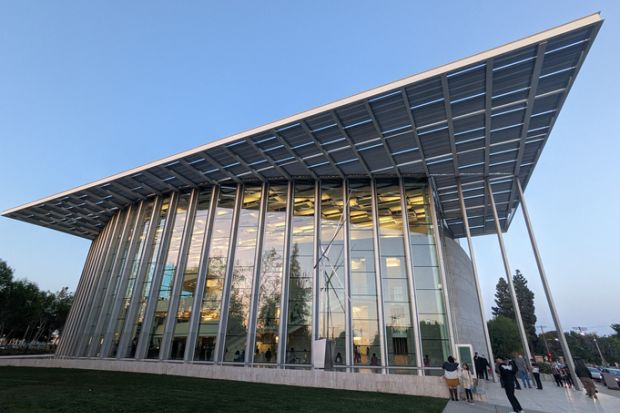California State University, the biggest four-year system in the US, has approved a major tuition fee hike – 33 per cent over the next five years – in what its leaders called an essential move to keep up with costs.
As protesters gathered outside the CSU offices just south of Los Angeles, and after hours of pleading inside, the CSU trustees voted 9-0 for the 23-campus system’s first tuition increase in more than a decade.
“The tuition increase,” CSU’s chief financial officer, Steve Relyea, told the trustees, “is essential to provide the CSU with the financial stability it needs to continue to serve students today and in the future.”
Others disagreed, including the CSU faculty union, which called it deeply harmful to low-income students. The state’s lieutenant governor, Eleni Kounalakis – a Democrat already running for governor in 2026 – joined a student protest against the hike, suggesting the decision will force many of them to drop out.
California is one among numerous US states with public college systems struggling to balance their budgets after several years of economic turmoil fomented by the Covid pandemic, a large infusion of federal aid and its subsequent withdrawal.
The 460,000-student CSU system has not, however, experienced declines in state support – its state budget allocation has grown by 34 per cent since the 2017-18 academic year, according to an analysis the system compiled earlier this year. CSU trustees also noted that the system had made only one tuition fee hike, of 5 per cent, in the past 12 years, covering a period in which inflation rose by 39 per cent.
The trustees said that the new tuition increase – 6 per cent a year for five years – will produce $860 million (£690 million) in revenue, with $280 million of that amount reserved for student financial aid. About 60 per cent of CSU undergraduates would face no increase because their tuition was fully covered through scholarships and other aid, system leaders said.
Tuition for full-time undergraduate students at CSU will reach $6,084 in the 2024-25 academic year and $7,682 by 2028-29. That’s well below the nationwide average of $9,700 for public institutions in 2021-22, even with California being one of the highest-cost states in the country. Annual tuition and fees in the University of California system exceed $16,000. And CSU campuses are consistently ranked among the best in the nation for improving the lives of students from low-income backgrounds.
The California Faculty Association – representing 29,000 professors, lecturers and other staff at CSU – said it nevertheless feared the increase “will price out current and potential students, especially those who identify as black, brown, immigrant, low-income and/or first-generation college students”.
The union also accused CSU of providing high executive pay. The new CSU chancellor, Mildred García, begins next month with a base salary of $795,000, up from $625,000 for her predecessor. The trustees voted in July to give CSU presidents and executives salary bumps of at least 7 per cent, saying they found them underpaid compared with comparable institutions nationwide. The executives still accounted for less than 1 per cent of the system’s salary costs, CSU officials said.
Other leading costs, beyond wages, include deferred maintenance on ageing infrastructure, according to the report on system finances that the CSU system issued this past May. Most CSU facilities are more than 40 years old, and the cost of necessary repairs and replacements has reached $5.8 billion, growing by $284 million a year, it said.
Register to continue
Why register?
- Registration is free and only takes a moment
- Once registered, you can read 3 articles a month
- Sign up for our newsletter
Subscribe
Or subscribe for unlimited access to:
- Unlimited access to news, views, insights & reviews
- Digital editions
- Digital access to THE’s university and college rankings analysis
Already registered or a current subscriber? Login








